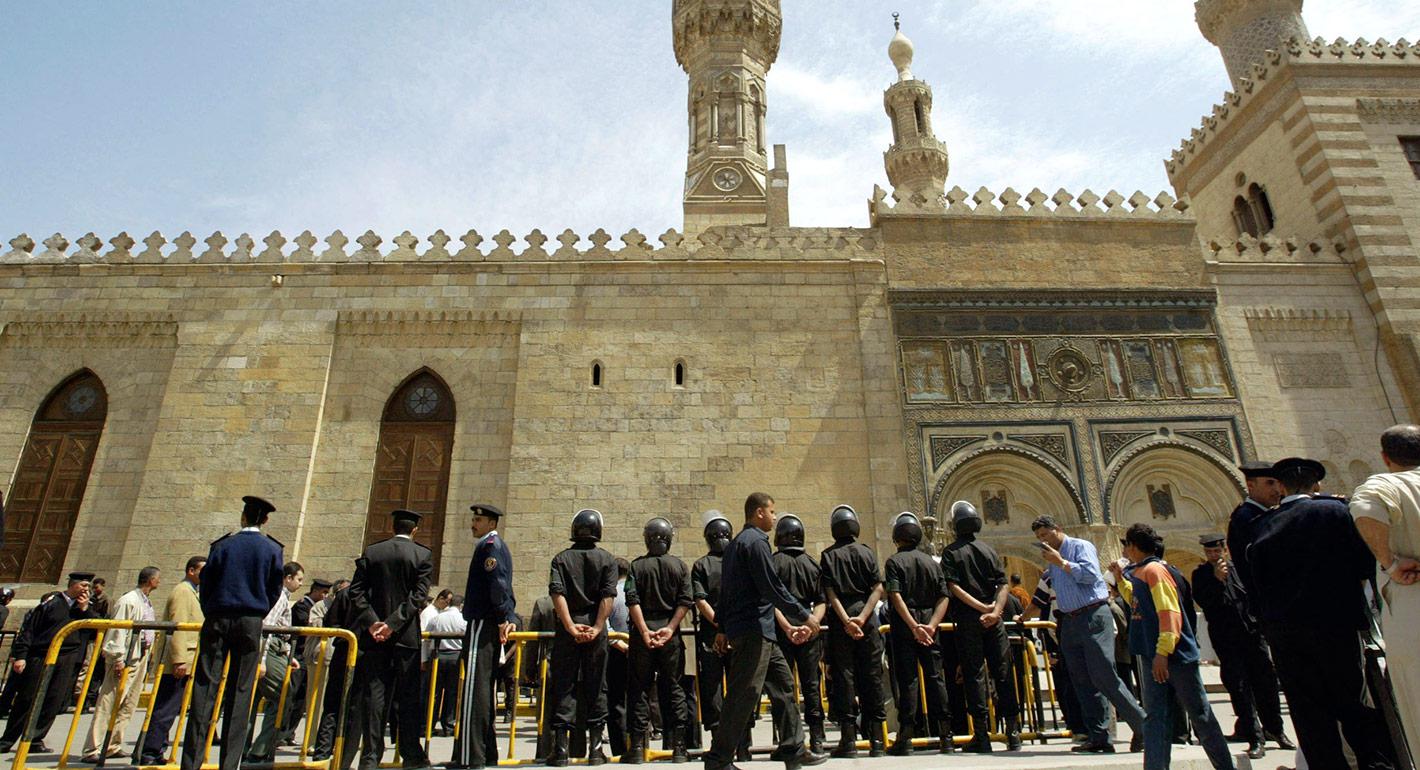In March, the Egyptian Ministry of Justice announced that they had finalized a new personal status law that aimed to create a better balance between the rights of men and women. Alongside this announcement, Egyptian President Abdel Fattah al-Sisi reiterated his call for an amendment of divorce laws. Sisi stressed that no action would be taken in contravention of Islamic law, but that the government would work to ban verbal divorce; only those granted by an authorized marriage official would be acknowledged. In a speech to honor Egyptian women on Mother’s Day, Sisi argued that the new law intended to protect families and children, and promised to allow for public input to ensure that the law was objective and balanced.
Less than a month after the President's speech, the Grand Imam of al-Azhar Sheikh Ahmed al-Tayeb called for an international conference of Islamic scholars, affirming that “a new rule on verbal divorce needs a new legal consensus from senior Islamic jurists.” Al-Azhar’s insistence that laws established by Islamic jurisprudence can only be changed by a new consensus among Islamic scholars has renewed a power struggle between Egypt’s religious and civil authorities.
This particular debate over Islamic divorce in Egypt goes back at least six years. On January 24, 2017, in a speech attended by the Grand Imam, President Sisi argued that verbal divorce should be outlawed, except in the presence of a legal official. He cited the fact that 40 percent of Egyptian marriages end in divorce in the first five years, and that Egypt’s Dar al-Ifta—the centuries-old Islamic advisory body—had received 300,000 divorce-related questions within the past five years.
Sisi's proposal sparked a wave of mixed reactions, and al-Azhar’s Council of Senior Scholars responded by insisting that verbal divorce “has been set in stone since the time of the Prophet, without any need for testimony or documentation.” They argued that “the phenomenon of increasing divorce cases cannot be wiped out by conditioning the documenting or authentication” [of divorce] and that “the published divorce statistics are already documented either by the authorized marriage official or a judge.”
In April of the same year, several pro-regime members of parliament pushed for legislation to impose a twelve-year term limit on the Grand Imam and compel the Council of Senior Scholars to include non-religious experts. However, interventions from some Gulf states helped to kill the bill, invoking constitutional provisions that enshrine al-Azhar’s independence.
In every confrontation between the Egyptian presidency and the Grand Imam of al-Azhar, the Egyptian public have always sided with the Imam—even followers of the Muslim Brotherhood, who denounced the Imam’s position on the coup that ousted former President Mohamed Morsi. This has occasionally led to public demonstrations: on November 23, 2018, for example, a coalition of al-Azhar supporters called for Friday prayers to be held in Al-Tayeb square, in the Imam’s hometown of Qurna, in the face of a fierce media campaign against him.
A Battle for The Enduring Values of Religion
Verbal divorce was not the only time when Sisi and al-Tayeb failed to reach common ground on an important issue. In 2013, they had a dispute over the violent dispersal of the Rabaa al-Adawiya and al-Nahda sit-ins, and in 2015, Sisi called for a “religious revolution,” urging al-Azhar to denounce certain longstanding Islamic ideas and texts that he believed contributed to radicalism. Al-Azhar immediately responded by affirming its unwavering adherence to the two foundations of Islam—the Qur'an and the Sunnah—and its categorical refusal to any attempt to manipulate either.
There have been other high-profile altercations between Sisi and al-Azhar in recent years. In 2018, during a ceremony organized by the Ministry of Awqaf to celebrate the anniversary of the birth of Prophet Muhammed, the Grand Imam attacked critics of the Sunnah who were trying “to draw the Egyptian people away from Islam.” Sisi responded by clarifying that his critique was with misinterpretations of the Sunnah, rather than the text itself. But the Egyptian government then went on to announce the standardization of the Friday sermon, much to the chagrin of al-Azhar, who saw the decision as an insult to its status. This was followed by the government’s decision to entrust the training of new imams to the Ministry of Awqaf, rather than al-Azhar.
Then in 2019, in a speech before President Sisi, the Grand Imam warned of the consequences of injustice and their destructive repercussions on society. In response, Sisi claimed that he was constantly fighting for religion. This public clash raised questions about the President’s intent to marginalize—or even dismiss—al-Tayeb.
However, these ongoing disputes belie the fact that al-Azhar and the political authority in Egypt have a co-dependent relationship. The religious establishment derives its strength and position from the authority, and in return helps the government advance its political agenda, legitimize its policies, and face its religious opponents, whether Jihadists or Salafists.
Accordingly, the issue of verbal divorce will likely end by a compromise that allows al-Azhar to save face and the government to pass the draft law it seems so intent upon. Political leaders will probably agree to a few amendments that help the Muslim scholars, should they agree to respond to the Grand Imam’s call for a meeting, reach a new consensus that mandates the documentation of verbal divorce.
But beyond the ruling regime, it seems that al-Azhar is now forced to fight on two other fronts. There is the liberal current in Egypt, which refuses to recognize its religious authority and wages media wars against it, and there are other groups of Islamic movements—particularly the Salafists and Muslim Brotherhood supporters—who previously sought to penetrate al-Azhar to control the official and popular religious discourse from within. These movements may also try to take advantage of the current rift between al-Azhar and the political authorities, in an effort to advance their opposition to the Sisi regime.
Mohamed Helmi Abdelwahab is an Egyptian academic and researcher, focusing on political Islam, Sufism, and the place of religion in the public sphere.


.jpg)



